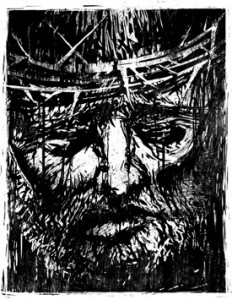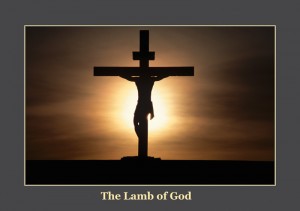
Recapitulating the Enemy
For we do not have a High Priest who cannot sympathize with our weaknesses, but was in all points tempted as we are, yet without sin.
Hebrews 4:15
Christus Victor, Christ is Victorious, was the favorite expression of the Ancient Church. Why? The world, the flesh, sin , death, and the devil were defeated by Christ’s life, death, burial, and resurrection. Christus Victor is the declaration that Christ undid Adam’s tragic choice of sin. Jesus has taken back this fallen world for the Father’s glory by defeating Satan’s grip on humankind. Christus Victor means that this fallen world is now retaken from Satan’s domain, redeemed, and brought under Christ’s Lordship. Therefore, God the Father is summing up of all things in Christ (Eph. 1:10, Col. 1:15-20).
Adam came forth from innocence and was tempted by Satan bringing sin and death into the world through disobedience at that awesome tree (Rom. 5:15). By contrast, Christ was born of the Virgin Mary, stood fast against Satan’s wiles, and was victorious over sin through obedience to God by hanging on that cursed tree. Christ passed through every phase of our lives-redeeming birth, childhood, adolescence, adulthood, and even death-so that we might be set apart unto him as lights to the world. Every aspect of the life of Christ was lived in order to undo the work of Satan. The temptation in the wilderness is Christ passing the ultimate test of temptation when Adam and Israel had failed to obey God’s commands. Jesus’ finished work on Calvary’s Hill defeated death, sin and Satan and his resurrection was the ultimate declaration of that victory.
According to the theory of recapitulation (the Christus Victor view of the atonement), Christ’s shed blood on the cross was the ransom paid that brought about our release from Satan’s captivity. God the Father used the deception of Jesus being God incarnate in human flesh to trick Satan. Satan did not know that Jesus was God. In exchange for sin-trapped humankind, the devil took Jesus as ransom payment. Unwittingly, Satan was deceived for he did not know that Jesus would triumph by overthrowing sin and death.
Without equivocation, I affirm Jesus defeat of Satan’s power over believers’ lives, but the theory of recapitulation leaves much to be desired. The theory gives Satan more power than he has, makes Christ death on the Cross a transaction with the devil, and the Lord’s defeat of Satan is described in terms of deception and trickery [John Stott, The Cross of Christ (Downers Grove, IL: InterVarsity Press, 1986), 112.]
However, the strength of the Christus Victor understanding is that the doctrine of the incarnation is stressed along with the death of Christ in the overall atoning work of Jesus in conquering sin and defeating the devil.
At the risk of oversimplification, the theme of Christ as bringer of victory can be compared with a child who has been kidnapped. In such a case, the object of the parent’s anger will be directed not toward the child, but rather it is the kidnappers who must be dealt with . . . . As a result of the Fall, they became the captives of the kidnappers: sin, death, and the devil . . . . Christ came to do battle with humanity’s enemies and thus open the way for us to return to our rightful home.
Jaroslav Pelikan, The Emergence of the Catholic Tradition, Vol. I, The Christian Tradition: A History of the Development of Doctrine (Chicago: University of Chicago Press, 1971), 149.
Our Lord Jesus Christ, who did, through his transcendent love, become what we are, that he might bring us to be even what he is himself.
Bishop Irenaeus of Lyon (2nd century AD – c. 202)
The missing link in Western theology is a deep appreciation for the incarnation and subsequent Christus Victor theme of how God incarnate won a victory over sin and death. . . . Christus Victor was the primary atonement view of the early church fathers (this view does not in any way deny the sacrifice of Christ).
Robert E. Webber, Ancient-Future Worship: Proclaiming and Enacting God’s Narrative (Grand Rapids: Baker Books, 2008), 170.

